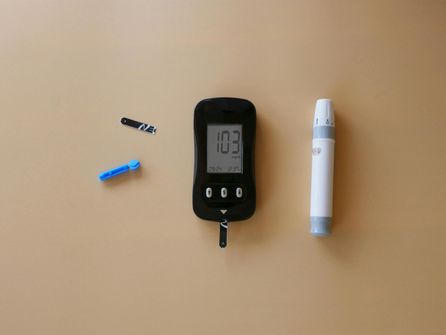
Antibiotics and Intermittent Fasting: Do They Break Your Fast?
Fasting has been practiced for centuries, whether for religious, health, or lifestyle reasons. But with the growing popularity of intermittent fasting...

Intermittent fasting is popular for its possible health benefits such as losing weight, better metabolism, and longer life span. One important benefit is how it affects insulin resistance and helps in controlling diabetes, which is especially significant for women.
This blog looks at the complex link between intermittent fasting, insulin resistance, PCOS (Polycystic Ovary Syndrome and diabetes type 2.
We will examine how intermittent fasting aids in dealing with insulin resistance and diabetes in women. We will also discuss how to follow IF food plan properly and while paying attention to women’s specific requirements.
Insulin resistance happens when the body is less responsive to insulin, which controls blood sugar. If it continues for a long time, blood sugar can go up too much and there’s a higher chance of getting type 2 diabetes.
note
Women with PCOS often experience insulin resistance, complicating their risk profile for diabetes.
The method of intermittent fasting, where one does not eat for 16 hours and then eats in an 8-hour time frame, is known to enhance insulin sensitivity. Such benefit could help control or possibly turn around situations when the body resists insulin. Research indicates that doing intermittent fasting might result in weight loss and fat, which helps to decrease insulin resistance.
Women with PCOS notice that doing intermittent fasting helps a lot because it makes insulin work better and also keeps weight under control.
warning
PCOS provoke hormonal imbalance and problems with excess weight. Intermittent fasting works it out in two ways.
The first one is consistent weight loss. And the second one is making the body respond to insulin better. The latter prevent diabetes 2 and other linked conditions.
While a lot of attention on intermittent fasting and diabetes is about insulin resistance and type 2 diabetes, it’s important to think about what this means for women who have type 1 diabetes.
People with type 1 diabetes need to be careful if they want to try intermittent fasting because they always need to take insulin to control their blood sugar levels. Women who have type 1 diabetes and think about trying intermittent fasting need to always do it with careful oversight from a doctor.
This way they can adjust their insulin properly when they are in periods of not eating, which helps keep their blood sugar steady and stops them from having too low blood sugar levels.
Many people worry that doing intermittent fasting might lead to diabetes. Nevertheless modern studies prove that IF can’t cause the condition. You still must be careful with intermittent fasting, especially if you already have problems controlling their blood sugar.
This question needs a detailed response. Intermittent fasting might help diabetics by making the body more responsive to insulin and controlling blood sugar levels better. It’s crucial for people with diabetes to start fasting after consulting with a doctor. This way, they can prevent dangers such as low blood sugar during and after fasting.
Women with type 2 diabetes wanting to start intermittent fasting need a well-prepared strategy.
tip
It’s important for them to get doctor advice on how to change the amount and schedule of their diabetes medicines like metformin when doing intermittent fasting, so they can avoid dangerously low blood sugar levels.
Select an Appropriate Fasting Method: The 16:8 intermittent fasting approach is widely used, but it’s important to pick a fasting routine that fits well with your daily life and health requirements. Consulting with a healthcare provider can help determine the best approach.
Check Glucose in Blood: It’s important for people having diabetes to keep watching their blood sugar numbers often so they stay safe when they do not eat for a while.
Maintain a Focus on Consuming Foods High in Nutrients: During the times when you eat, as this can improve the advantages gained from following an intermittent fasting schedule. Eating many fibers, proteins that are not fat and good fats can help to keep blood sugar stable and be good for health.
Begin with shorter lengths of time for fasting: Slowly extend these times to let the body become accustomed to the pattern of intermittent fasting without too much strain.
Intermittent fasting is a hopeful and doable method for controlling insulin resistance and diabetes, especially in women who have PCOS and type 2 diabetes. This manual has highlighted the need for a careful and individually tailored way of doing intermittent fasting for women, this includes those with type 1 diabetes.
While research shows that IF might make insulin work better and help control diabetes, it doesn’t work the same way for everyone.
To be successful, you need a plan made just for you and watch your health closely. Intermittent fasting is a useful method for women to manage diabetes, providing a way towards better metabolism and overall health.

Fasting has been practiced for centuries, whether for religious, health, or lifestyle reasons. But with the growing popularity of intermittent fasting...

What Is Intermittent Fasting?Ready to dive into a hot topic that's got everyone talking? Today, we're chatting about whether HIV medications can break...

Hey there, gorgeous! It seems like everyone and their mother is raving about intermittent fasting (IF) these days, doesn't it? From the 16/8 method wh...

Social gatherings often mean a spread of carb-heavy foods and tempting desserts that can make sticking to the carnivore diet feel tricky. But with a b...

The carnivore diet is often seen as straightforward: eat meat, keep it simple. But adapting it seasonally can bring freshness, variety, and local flav...